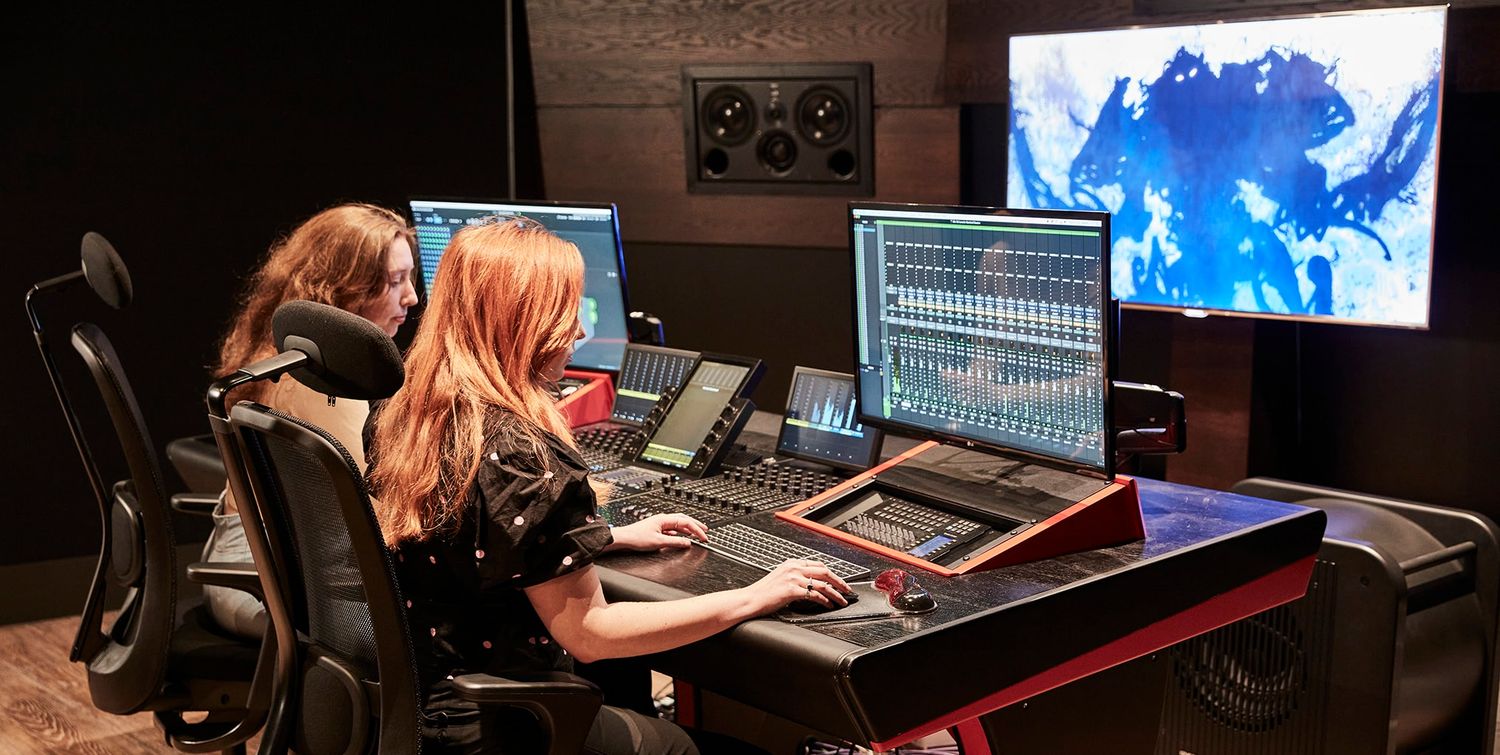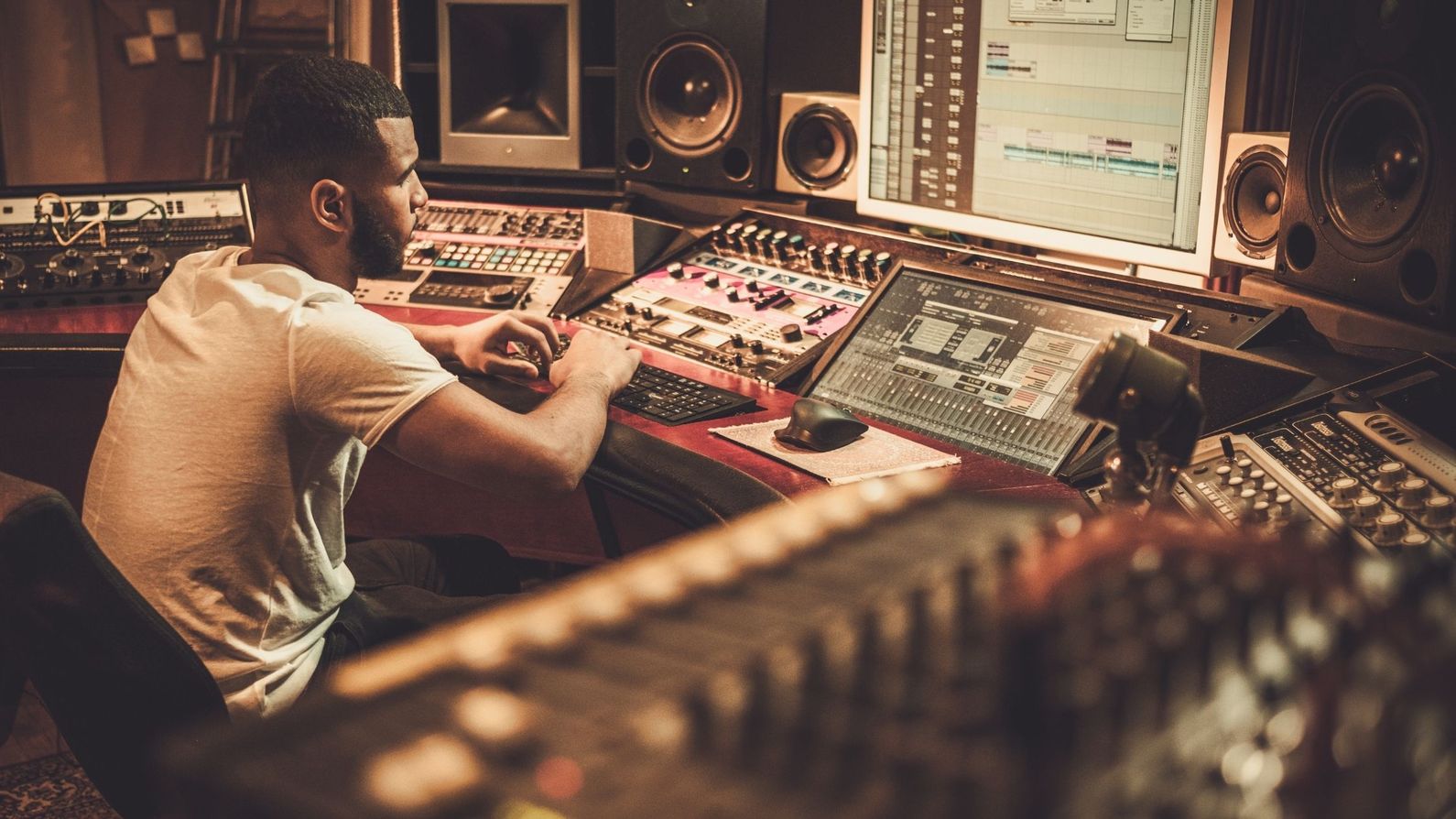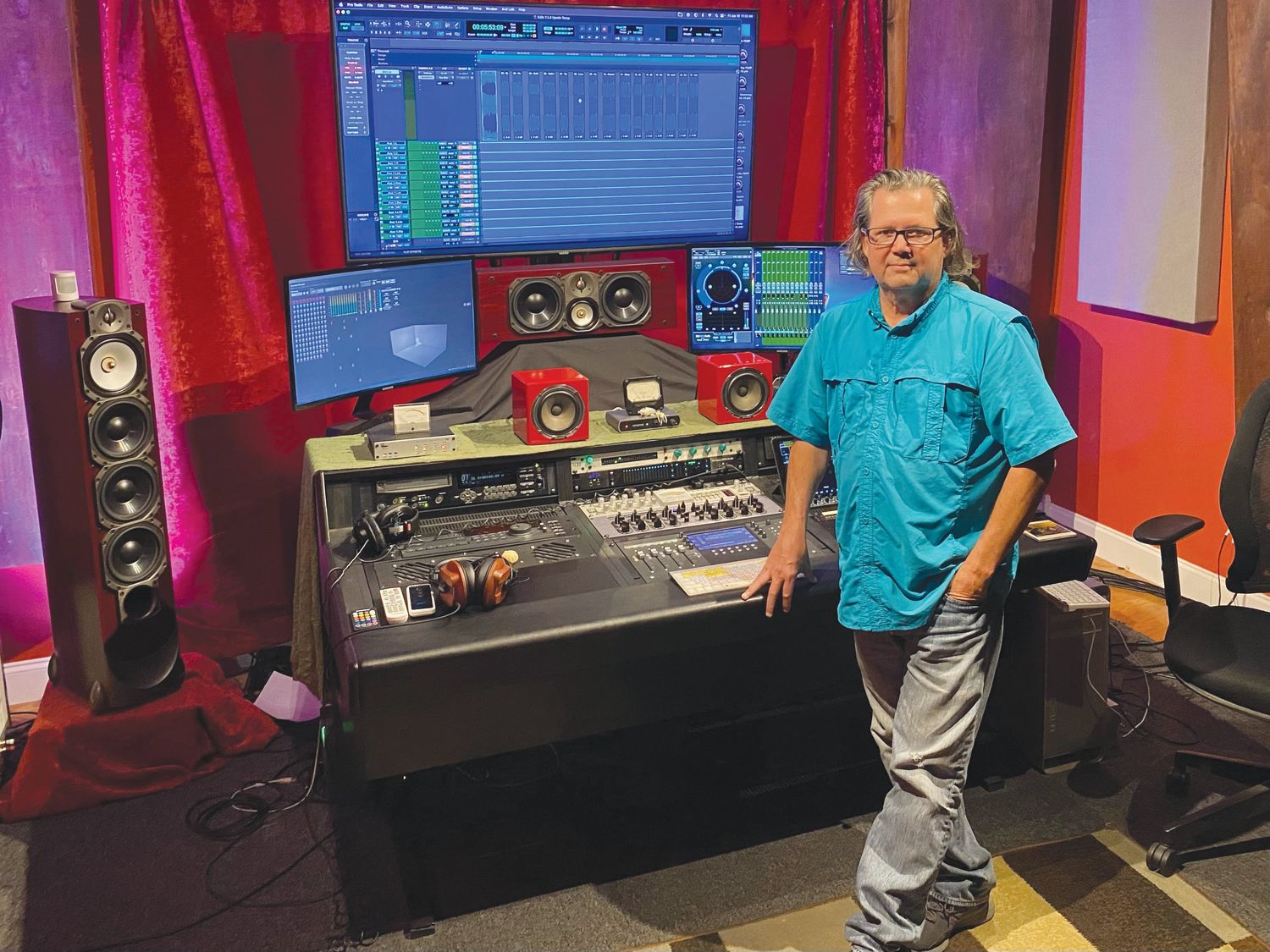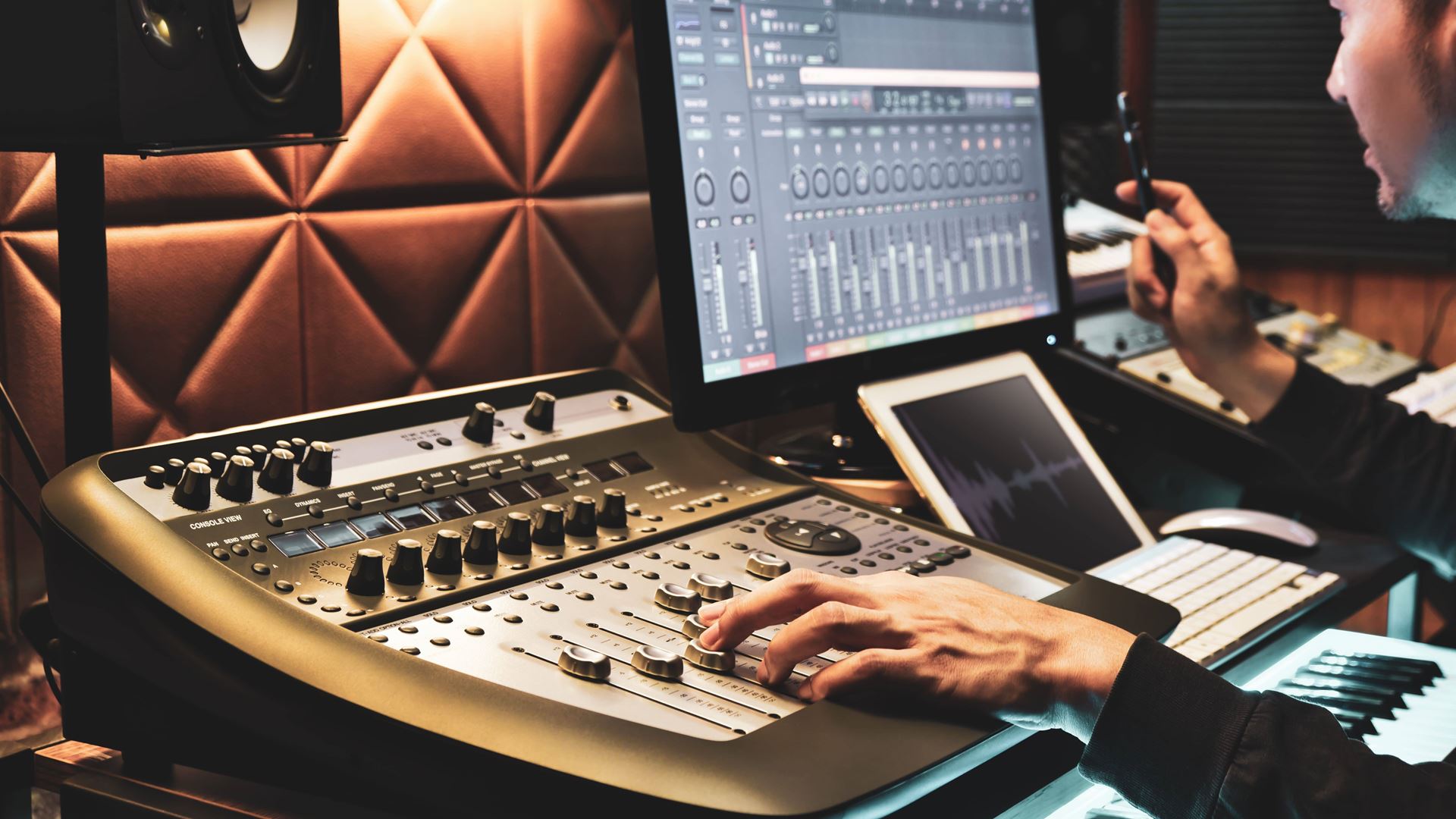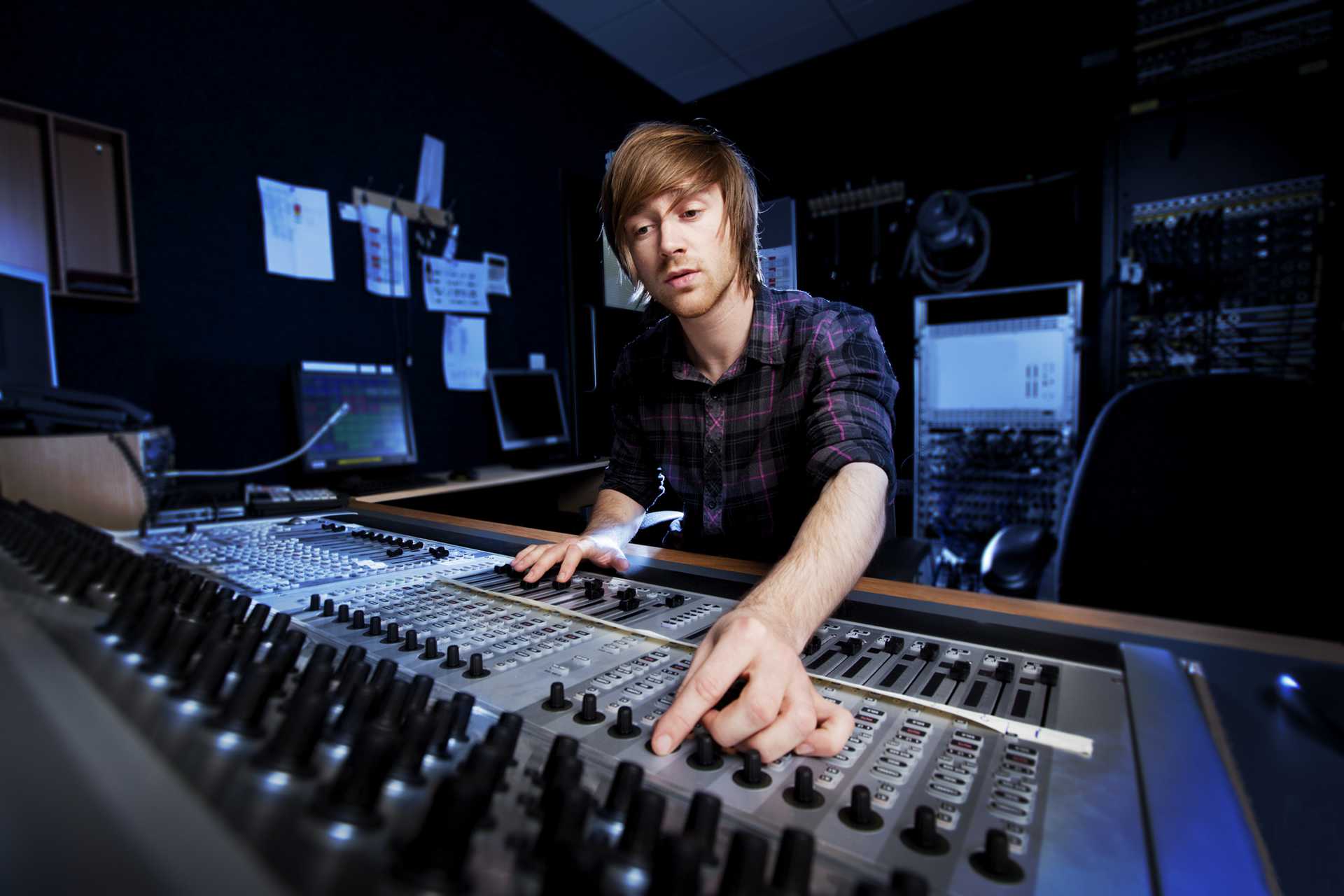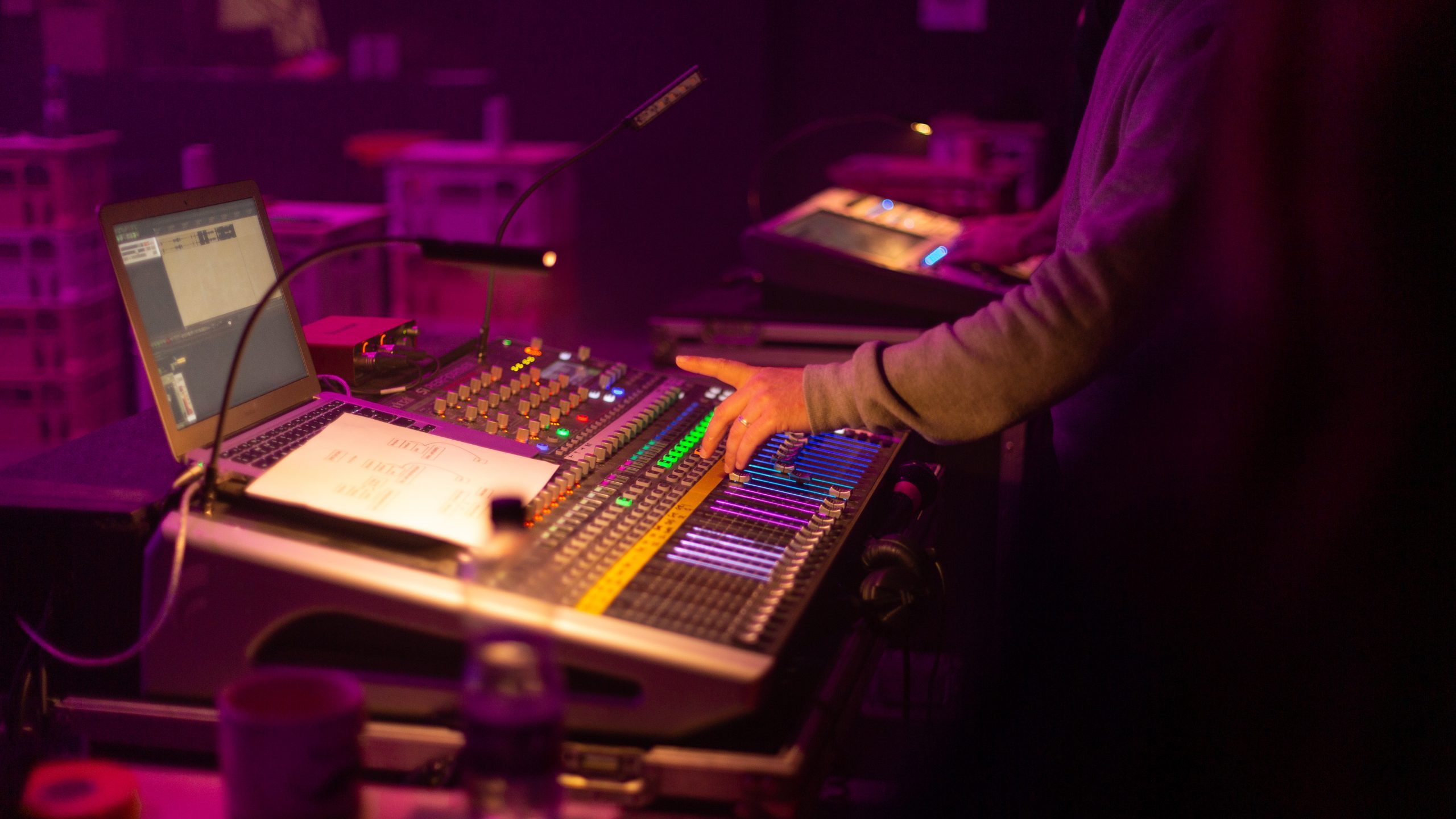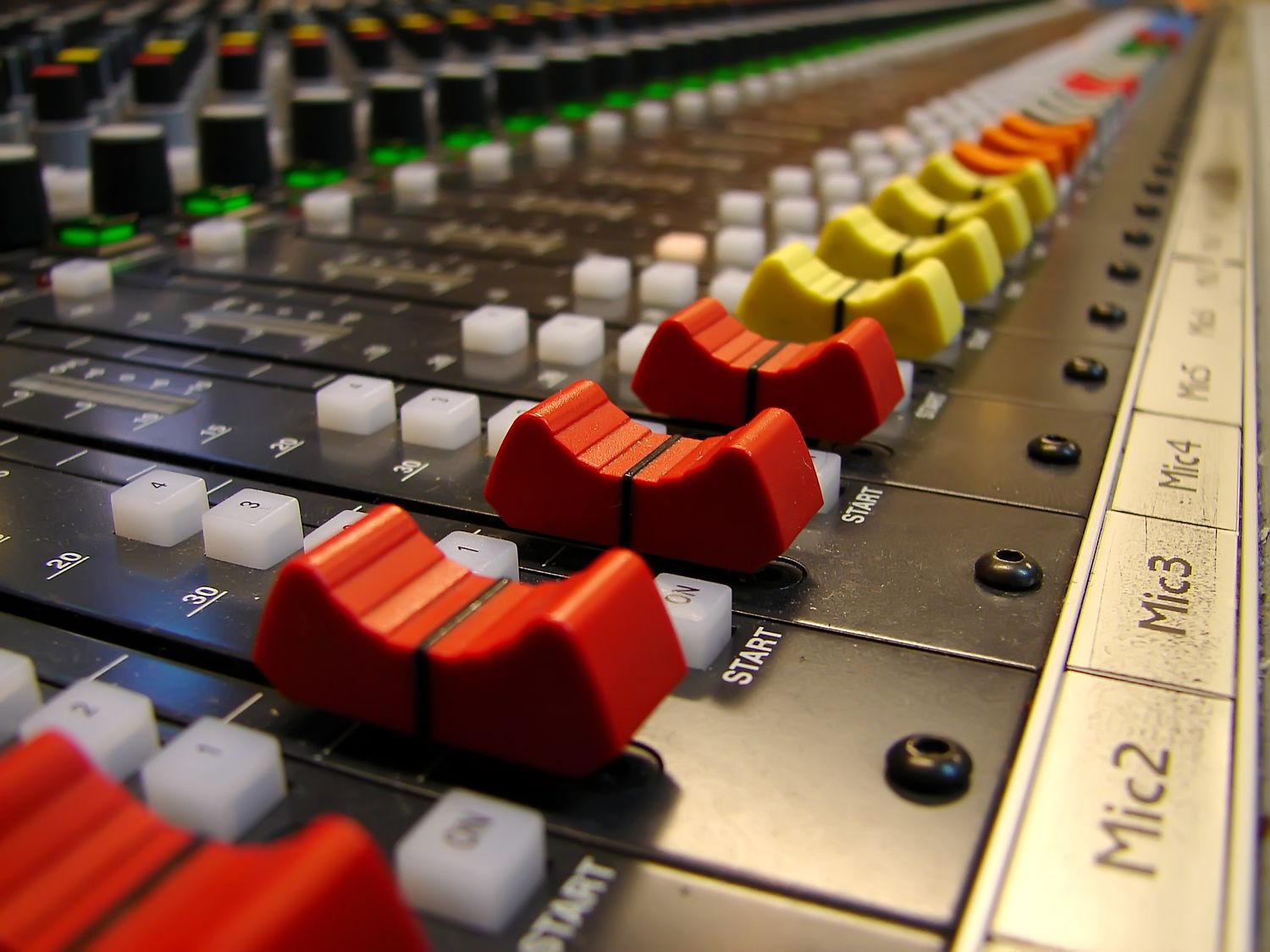Home>Production & Technology>Sound Engineer>How Long Do You Have To Study To Become A Sound Engineer?
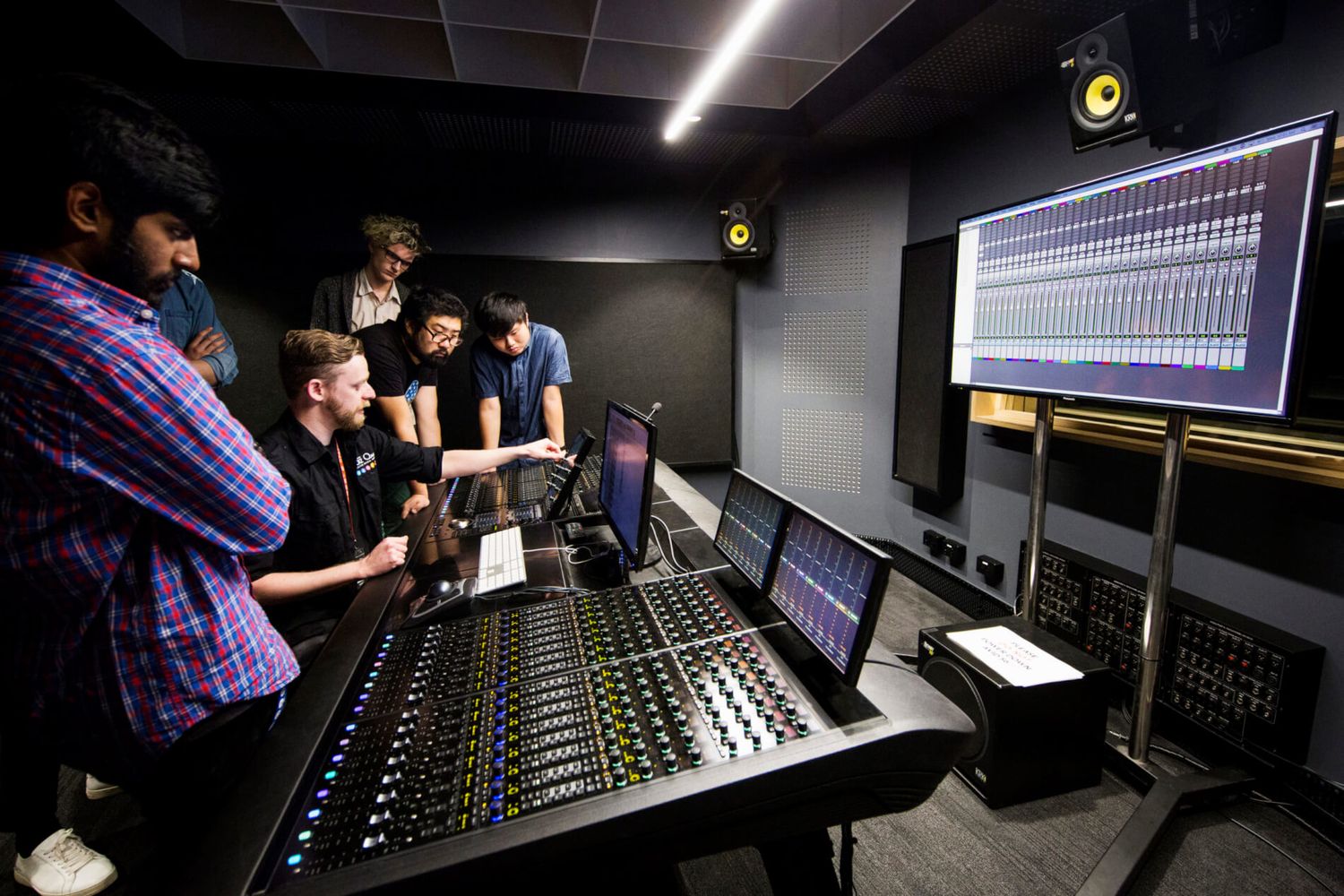

Sound Engineer
How Long Do You Have To Study To Become A Sound Engineer?
Modified: March 7, 2024
Become a sound engineer with the right study plan. Discover the time commitment needed to pursue a career in sound engineering.
(Many of the links in this article redirect to a specific reviewed product. Your purchase of these products through affiliate links helps to generate commission for AudioLover.com, at no extra cost. Learn more)
Table of Contents
Introduction
Becoming a sound engineer is an exciting and rewarding career path that offers the opportunity to work in diverse industries such as music production, film, television, live events, and recording studios. Sound engineers play a crucial role in capturing, mixing, and producing high-quality audio, making their expertise indispensable in the entertainment and media sectors.
The journey to becoming a proficient sound engineer involves a combination of formal education, hands-on training, and continuous skill development. Aspiring sound engineers must possess a passion for music and sound, a keen ear for detail, and a strong technical aptitude. Additionally, they should be adaptable, creative, and able to thrive in fast-paced, dynamic environments.
In this article, we will delve into the educational and training requirements for aspiring sound engineers, shedding light on the time commitment involved in pursuing this career path. Whether you are considering enrolling in a formal sound engineering program or seeking on-the-job training opportunities, understanding the time investment required is essential for planning and embarking on this fulfilling professional journey.
As we explore the time commitment for formal education, on-the-job training, and ongoing professional development, you will gain valuable insights into the dedication and perseverance necessary to excel in the field of sound engineering. By the end of this article, you will have a comprehensive understanding of the time frame involved in becoming a proficient sound engineer, empowering you to make informed decisions and embark on a fulfilling career in the realm of audio engineering.
Education and Training Requirements
Becoming a proficient sound engineer requires a solid foundation in both technical knowledge and practical skills. While formal education is not always mandatory, it can significantly enhance one's understanding of sound engineering principles and techniques. Many aspiring sound engineers choose to pursue a degree or diploma in audio engineering, music production, or a related field to acquire the necessary expertise and credentials.
A typical sound engineering program encompasses a wide range of subjects, including acoustics, sound design, music theory, digital audio workstations (DAWs), mixing and mastering techniques, and live sound reinforcement. Students delve into the intricacies of recording equipment, signal processing, and studio technologies, gaining hands-on experience in professional recording environments. Additionally, coursework often covers the fundamentals of electronics, computer programming, and audio software applications, equipping students with a comprehensive skill set to excel in the field.
In addition to formal education, aspiring sound engineers can benefit from specialized training programs and workshops offered by audio engineering schools and industry professionals. These intensive programs provide practical, real-world experience and allow students to work with state-of-the-art equipment and industry-standard software. Furthermore, mentorship opportunities and networking events enable aspiring sound engineers to connect with established professionals, gaining valuable insights and industry contacts.
While formal education and training lay a strong foundation for a career in sound engineering, hands-on experience is equally crucial. Many aspiring sound engineers seek internships or entry-level positions at recording studios, live event venues, or production companies to gain practical experience and refine their skills. This on-the-job training allows individuals to apply their theoretical knowledge in real-world scenarios, honing their abilities in audio recording, mixing, and sound reinforcement.
Ultimately, the education and training requirements for sound engineers are multifaceted, encompassing a blend of formal education, specialized training, and practical experience. By immersing themselves in a comprehensive learning environment and seeking opportunities to apply their skills in real-world settings, aspiring sound engineers can cultivate the expertise and proficiency necessary to thrive in this dynamic and rewarding field.
Time Commitment for Formal Education
Embarking on a formal education path to become a sound engineer demands a significant time commitment. The duration of formal education programs in audio engineering, music production, or related fields typically ranges from one to four years, depending on the level of qualification pursued. For instance, a diploma or certificate program may span one to two years, while a bachelor's degree program can extend to four years. These programs are designed to provide students with a comprehensive understanding of sound engineering principles, technical skills, and industry best practices.
During their formal education journey, aspiring sound engineers dedicate substantial time to attending classes, participating in hands-on lab sessions, and completing coursework. The curriculum often encompasses a diverse range of subjects, including acoustics, sound design, music theory, digital audio workstations (DAWs), mixing and mastering techniques, and live sound reinforcement. As a result, students are immersed in a rich learning environment that requires focused attention and dedication to mastering the intricacies of audio engineering.
In addition to classroom instruction, students pursuing formal education in sound engineering often engage in practical projects, studio sessions, and collaborative assignments. These practical components are integral to the learning process, allowing students to apply theoretical concepts in real-world scenarios and develop their technical proficiency. As a result, students invest significant time in studio sessions, recording, mixing, and mastering audio tracks, and gaining hands-on experience with industry-standard equipment and software.
Furthermore, formal education programs may include opportunities for internships, industry placements, or capstone projects, enabling students to gain practical experience and establish connections within the audio engineering industry. These experiential learning opportunities require additional time commitment but are invaluable in shaping students into well-rounded and competent sound engineers.
Overall, the time commitment for formal education in sound engineering is substantial, encompassing several years of dedicated study, practical application, and skill development. However, the investment of time and effort in formal education equips aspiring sound engineers with a strong foundation of knowledge and expertise, paving the way for a successful and fulfilling career in the dynamic realm of audio engineering.
Time Commitment for On-the-Job Training
On-the-job training serves as a pivotal phase in the journey of an aspiring sound engineer, offering invaluable hands-on experience and practical skill development in real-world audio production environments. Unlike formal education, which provides a theoretical foundation, on-the-job training immerses individuals in the dynamic and fast-paced landscape of sound engineering, allowing them to apply their knowledge, refine their techniques, and gain firsthand insights into the intricacies of audio production.
The time commitment for on-the-job training can vary widely, depending on the specific opportunities pursued and the individual's dedication to skill enhancement. Many aspiring sound engineers secure entry-level positions, internships, or apprenticeships at recording studios, live event venues, or production companies to kickstart their on-the-job training journey. These positions often require a time commitment ranging from several months to a few years, during which individuals actively engage in audio recording, mixing, sound reinforcement, and studio operations.
During on-the-job training, aspiring sound engineers work alongside experienced professionals, learning from their mentorship, observing industry best practices, and contributing to real projects. This immersive learning experience demands a significant time investment, as individuals dedicate themselves to mastering the technical aspects of audio engineering, refining their critical listening skills, and honing their ability to troubleshoot and optimize audio systems.
Furthermore, on-the-job training provides aspiring sound engineers with exposure to a diverse array of projects, genres, and production environments, contributing to their overall skill development and adaptability. Whether working on music recordings, live events, film soundtracks, or broadcast productions, individuals undergoing on-the-job training invest their time and energy in acquiring a broad spectrum of audio engineering competencies, preparing them for the multifaceted demands of the industry.
In addition to the practical aspects of on-the-job training, individuals often engage in continuous learning and skill refinement during this phase. They may attend industry workshops, seminars, and training sessions to stay updated on the latest technologies, trends, and techniques in sound engineering. This commitment to ongoing professional development further enhances their expertise and prepares them for the dynamic and ever-evolving landscape of audio production.
Overall, the time commitment for on-the-job training is a crucial component of the journey to becoming a proficient sound engineer. It offers aspiring professionals the opportunity to immerse themselves in real-world audio production, refine their skills, and gain the practical experience necessary to excel in this dynamic and rewarding field. The dedication and perseverance invested during on-the-job training lay the groundwork for a successful and fulfilling career in sound engineering.
Continuing Education and Professional Development
Continuing education and professional development are integral aspects of a sound engineer's career journey, ensuring that individuals remain current with industry trends, technological advancements, and best practices in audio engineering. As the field of sound engineering continually evolves with the introduction of new equipment, software, and production techniques, sound engineers must commit to ongoing learning and skill enhancement to stay competitive and proficient in their craft.
One avenue for continuing education is through specialized workshops, seminars, and training programs offered by industry organizations, audio engineering schools, and professional associations. These opportunities provide sound engineers with access to cutting-edge technologies, emerging trends, and advanced production methodologies. By participating in these events, individuals can expand their knowledge base, refine their technical skills, and gain insights from industry experts, ultimately enhancing their capabilities as sound engineers.
Furthermore, the rapid evolution of audio production technologies necessitates that sound engineers stay abreast of the latest software applications, hardware innovations, and audio processing techniques. Engaging in self-directed learning, such as exploring new digital audio workstations (DAWs), mastering plug-ins, or immersive audio formats, allows sound engineers to adapt to industry shifts and deliver high-quality, innovative audio solutions.
Professional development also encompasses networking and collaboration within the audio engineering community. Attending industry conferences, trade shows, and networking events provides sound engineers with opportunities to connect with peers, exchange ideas, and forge valuable professional relationships. These interactions can lead to collaborative projects, mentorship opportunities, and exposure to diverse perspectives, enriching the professional growth of sound engineers.
Moreover, pursuing advanced certifications and credentials in specialized areas of audio engineering, such as live sound reinforcement, acoustics, or immersive audio production, demonstrates a commitment to excellence and expertise. Acquiring these additional qualifications not only enhances one's professional profile but also signifies a dedication to continuous improvement and mastery of specific facets of sound engineering.
In essence, continuing education and professional development are essential for sound engineers to thrive in a dynamic and competitive industry. By embracing lifelong learning, staying updated on industry advancements, and actively engaging with the audio engineering community, individuals can elevate their skills, expand their career opportunities, and make enduring contributions to the world of audio production.
Conclusion
In conclusion, the journey to becoming a proficient sound engineer is a multifaceted and dynamic process that demands dedication, perseverance, and a commitment to continuous learning. Aspiring sound engineers embarking on this career path must navigate through formal education, on-the-job training, and ongoing professional development, each of which requires a significant time investment. The culmination of these experiences equips individuals with the knowledge, skills, and practical expertise necessary to thrive in the diverse and ever-evolving landscape of audio engineering.
Formal education in sound engineering provides a solid foundation of theoretical knowledge, technical skills, and industry insights. The time commitment involved in pursuing a degree or diploma in audio engineering ranges from one to four years, during which students immerse themselves in a rich learning environment encompassing acoustics, sound design, music theory, digital audio workstations, and live sound reinforcement. The dedication to mastering these concepts and refining their practical skills prepares aspiring sound engineers for the demands of the industry.
On-the-job training serves as a pivotal phase in the journey of an aspiring sound engineer, offering invaluable hands-on experience and practical skill development in real-world audio production environments. Whether through internships, entry-level positions, or apprenticeships, individuals invest their time in mastering the technical aspects of audio engineering, refining their critical listening skills, and gaining firsthand insights into the intricacies of audio production. This immersive learning experience shapes individuals into well-rounded and competent sound engineers, preparing them for the multifaceted demands of the industry.
Continuing education and professional development are essential for sound engineers to stay competitive and proficient in their craft. Engaging in specialized workshops, self-directed learning, and networking opportunities allows individuals to expand their knowledge base, refine their technical skills, and stay updated on the latest technologies and trends in sound engineering. Embracing lifelong learning and actively engaging with the audio engineering community enables sound engineers to elevate their skills, expand their career opportunities, and make enduring contributions to the world of audio production.
In essence, the time commitment involved in becoming a sound engineer is a testament to the dedication and passion required to excel in this dynamic and rewarding field. By embracing the journey of formal education, on-the-job training, and continuous professional development, aspiring sound engineers can embark on a fulfilling career path, contributing their expertise to the creation of captivating audio experiences across various industries.


